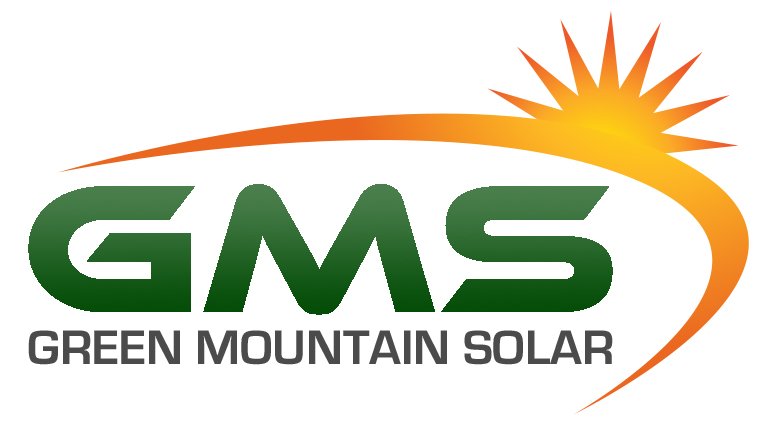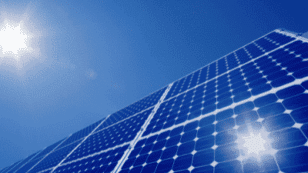
Vermont Solar Incentives (Rebates, Tax Credits & More in 2024)
In this comprehensive guide to solar incentives in Vermont, you’ll learn:
- How can solar incentives bring down the cost of converting to solar energy in Vermont?
- How do you file for the federal solar tax credit in Vermont?
- What solar incentives are the most valuable in Vermont?
Each product and or company featured here has been independently selected by the writer. You can learn more about our review methodology here. If you make a purchase using the links included, we may earn commission.
Do Vermont Solar Incentives Make It Affordable for Homeowners to Go Solar?
Yes! Installing a solar power system in Vermont is certainly not cheap, but available incentives — like cashback perks and tax credits — can help significantly bring down the cost of going solar.
The average cost of a solar array in Vermont is around $21,540 before any incentives are applied. If you consider just one of the incentives available in the Green State — the federal credit, which is the most appealing — your cost can drop to around $15,078. That’s a 30% decrease in the effective cost of your system.
Vermont has long been an environmentally friendly state, with a Renewable Portfolio Standard (RPS) goal of generating 75% of its energy from clean energy sources by 2032. Despite this lofty goal, the state has slightly below-average incentive programs available. These incentives are still beneficial but not as appealing as perks in other states.

SunCommon

Regional Service
Average cost
Pros
- Certified B Corp
- Offers products from leading manufacturers
- Many years of experience
Cons
- No leases or PPAs
- Expensive

Blue Raven Solar
Pros
- Industry-leading in-house financing
- Competitive pricing
- Excellent reputation
Cons
- Doesn't offer solar batteries (coming 2022)

Green Mountain Solar

Local Service
Average cost
Pros
- Locally owned and operated
- Offers products from leading manufacturers
- Great warranty coverage
Cons
- No leases or PPAs
- Relatively young company
In the chart below, we’ll detail the solar incentives available to Vermont solar customers. We’ll also explain how each of these perks saves you money and provide savings estimates in the following sections.
| Incentives for Solar Conversion in Vermont | Incentive Type | Description | Occurrence | Estimated Dollar Amount You Can Save |
| Federal Solar Investment Tax Credit (ITC) | Federal | Credit to your income tax burden for 30% of your entire solar panel system value | One-time: Applied when you file your taxes for the year you install your solar panel system | $6,462 on average in Vermont |
| Renewable Energy Systems Sales Tax Exemption | State | Waives all sales tax on solar photovoltaic (PV) equipment | One-time: Applied when you purchase your equipment | $1,292 on average in Vermont |
| Uniform Capacity Tax and Exemption for Solar | State | Prevents your property taxes from increasing due to the added value from your solar system | Ongoing: Always in effect | Varies based on the value and size of your solar system |
| Net Energy Metering | Local | Provides electric bill credits for all excess power you generate and send to the electric grid | Ongoing: Always in effect | Varies based on your monthly energy bills, local electric rates, the size of your system and more |
| Local Incentives | Local | Cashback incentives offered by utility companies for energy efficiency upgrades
*Note: no incentives are currently available for solar equipment, specifically |
One-time: Applied once when you make qualifying home improvements | Varies based on the type of energy efficiency upgrade |
What Do Vermonters Need to Know About the Federal Solar Tax Incentive?
The federal solar investment tax credit (ITC) is a credit offered by the federal government to incentivize property owners nationwide to convert to solar energy. The federal tax credit is available to all residents in Vermont.
The credit is for 30% of your entire system value, which gets credited to the income taxes you owe for the year you install and commission your system. In Vermont, where the average system total is $21,540, the typical credit is around $6,462 – you can always use a quick solar estimate calculator to help better understand what solar costs will look like for you.
The incentive program started in 2005 to promote solar adoption and clean energy. The credit, which dropped from 30% to 26% in 2022, was set to drop again in 2023 to 22% and then expire in 2024.
In 2022, Congress signed the Inflation Reduction Act, which includes a clause to extend the federal solar tax credit and increase the rate from 26% back up to 30%. The current rate schedule is as follows:
- The credit rate will be 30% for systems installed between 2022 and 2031
- The credit rate will drop to 26% in 2033
- The credit rate will drop to 22% in 2034
- The credit will no longer be available in 2035
How to Claim the Federal Tax Credit in Vermont
Taking advantage of the federal credit is paramount to minimizing what you pay for your solar system, and thankfully, it’s a simple process. You can follow the steps below to file for the credit.
- Step 1: Go to the Internal Revenue Service (IRS) website and print out IRS form 5695, which is used to file for renewable energy tax credits. You can fill out the form in just a few minutes. You might need to request some information from your installer, like the company name and contact information, the size of your system, the value of your PV equipment and more. Note, you can only claim the credit for the tax year after you install your solar panel system.
- Step 2: When you’re ready to file your taxes, make sure you or your accountant includes the completed IRS form. If you’re using tax software like TurboTax or H&R Block, the program should ask if you’ve installed PV equipment and will walk you through entering the necessary information.
- Step 3: Although there are rarely issues with taking this credit, we recommend checking your tax return to confirm that the credit was applied properly.
EcoWatch’s Opinion on the Federal ITC in Vermont
In our opinion, taking the federal solar credit is essential for solar customers in Vermont. Not only does this perk offer the greatest potential for effective savings on your PV equipment, but it also takes barely any time or effort to apply for or find out how much you can qualify to save. It’s also accessible to all Vermont homeowners, unlike other incentives that are specific to counties or utility companies.
We should note that this is a tax credit and not a solar rebate, so it’s possible you won’t be able to take all or any of the credit. Since the credit amount gets applied to your tax burden, you can only take this incentive if you owe income taxes.
However, you can take a partial credit for the first year if you don’t owe the entire amount in taxes. You can also roll over any unused credit for up to five years.
You should be able to take the entire credit — an average of $6,462 — as long as you’ll owe around $1,292 per year for the next five years on your income taxes.
What You Need to Know About the Sales Tax Exemption in Vermont
Since converting to solar can be expensive, the state of Vermont offers a sales tax exemption on solar equipment to help bring down your upfront system costs. This exemption applies to all PV equipment, including panels, batteries, inverters and electric vehicle (EV) chargers. It also includes the cost of labor.
Given the average system total of $21,540 in Vermont and the state tax rate of 6%, the state’s sales tax exemption can save you an average of $1,292.1 Keep in mind that this is not a rebate, and the savings will be reflected in your initial solar quote.
How to Claim the Sales Tax Exemption in Vermont
The sales tax exemption is automatically applied to your system costs in Vermont, so you won’t have to do any additional work to claim it. You simply purchase your system from a local solar installer, and the total amount you pay will include the 6% savings.
EcoWatch’s Opinion on Vermont’s Solar Sales Tax Exemption
Although the sales tax exemption saves you less than the federal tax credit, it’s still an outstanding benefit in Vermont because it doesn’t require any time or effort on your part to apply. You’ll save an average of nearly $1,300 just for living in Vermont and choosing to adopt solar power.
Watch Below: How Well Will Your Solar Panels Still Work When Covered In Snow?
What You Need to Know About the Property Tax Exemption in Vermont
As a home improvement project that increases your home value, solar installation should bump up your assessed home value and property taxes.2 To help reduce the burden of converting to solar, Vermont waives property taxes on the value your PV equipment adds to your home.
The amount you can save thanks to this incentive depends on a few factors, including:
- Your solar system size
- How much your system is worth
- How your property is taxed by local assessors
If we assume your system is taxed at the full market value — an average of around $21,540 in Vermont — and at the standard property tax rate of 1.73%, then this perk should save you approximately $372 per year on your property tax bill.3,4 That’s a maximum savings of around $9,316 over the average 25-year lifespan of your system.
Note, your actual savings will almost certainly be lower, as your system value depreciates over time. However, it’s challenging to calculate exactly how much your system depreciates and the effect that will have on your property taxes.
How to Claim the Property Tax Exemption in Vermont
This tax exemption for solar panels is another perk that is automatically applied, so you don’t have to take any action to take advantage of it. When your local tax assessor is determining your taxes and assessed property value, they will not consider your solar panel system.
EcoWatch’s Opinion on Vermont’s Property Tax Exemption
The exemption for property taxes in Vermont is a great perk, in our opinion. Not only does it save a few thousand dollars over the life of your system, but you also don’t have to do anything to apply for it. The benefit is applied automatically, so after you install your system, you’ll see those savings over the next 20 years.
What You Need to Know About Net Energy Metering in Vermont 
Net metering, or net energy metering, is a billing policy that ensures all solar production — even the kilowatt-hours (kWh) above and beyond what you consume — is accounted for and that you benefit from it.
Basically, the policy provides energy credits for the excess solar electricity your system produces. Those credits are then applied to future energy bills if you ever need to pull electricity from the grid. The credits offset your usage, which keeps your utility bills to a minimum, even during times of minimal solar production, like on cloudy days or at night.
This program is available whether you buy, finance or lease your panels.
The Vermont Public Service Commission (PSC) mandates a net energy metering program for all public utility companies. The companies use a “blended rate” to credit your account — this rate is just under the retail value, which means for every 1 kWh you send to the grid, you can pull less than but close to 1 kWh for free.
Your exact credit rate will depend on your utility provider, as the rate isn’t mandated by the PSC. Green Mountain Power (GMP) offers the most appealing rates in Vermont, hovering just under the retail price.
It’s important to note that net energy metering policies have recently been changing in other states. While there’s no plan for net energy metering to change in Vermont, it could become less appealing or disappear in the future.
How to Enroll in Net Energy Metering in Vermont
Enrolling in net energy metering is a simple process and won’t require any additional work for most homeowners. However, you can follow the steps below to ensure that you’re able to take advantage of this incentive.
- Step 1: Contact your utility company to confirm that you have a bidirectional electric meter installed. These have been implemented in most areas in Vermont, but it’s worth double-checking. If you don’t have a meter installed, you should be able to get one for free.
- Step 2: Install your solar panel system. Your solar company in Vermont will set you up with interconnection so that energy can pass back and forth between your home and the grid.
- Step 3: We suggest checking your electricity bills for a month or two after your installation is completed to confirm that your credits are registering as expected.
EcoWatch’s Opinion on Net Metering in Vermont
Net energy metering is, historically, one of the most beneficial solar benefit programs in the U.S., and we believe that stands true in Vermont. Net energy metering can provide you with several benefits, including:
- Helps keep utility bills to a minimum year-round
- Maximizes your energy savings over the life of your system
- Helps bring down the time it takes for your panels to pay for themselves
- Helps reduce your overall emissions and carbon footprint
It’s difficult to estimate the exact amount this perk can save you over the life of your system, but it does help you achieve the average 25-year savings of $29,752 in Vermont. As such, we believe this is an outstanding perk to take advantage of, especially since it requires minimal work on your part to enroll.
Local Solar Incentives in Vermont
In addition to the solar-specific incentives mentioned above, your utility company or municipality may offer other rebates or incentives for energy-efficiency upgrades. No local rebates in Vermont apply to solar installation specifically, but it’s still worth seeing if you can get cashback for improving your home efficiency in other ways.
Which Tax Incentives Are Best in Vermont?
We’ve mentioned all of the incentives available for installing solar equipment in Vermont above, but not all perks are equal in the value they provide. Below, we’ll offer our opinion on which incentives are the most valuable for solar customers in Vermont.
Federal Solar Tax Credit
In our opinion, the federal credit is the best incentive available to Vermonters. The credit can effectively bring down your system costs by 30%, and the time it takes to apply is minimal.
This incentive is worth the time it takes to enroll and can offer an average potential savings of over $6,400. Plus, it’s offered by the federal government, so it’s guaranteed to be available to all property owners in the Green Mountain State.
Net Metering
The next most beneficial solar perk in Vermont, in our opinion, is net energy metering. This benefit program helps you achieve maximum energy savings with your PV system. This incentive is massively beneficial, especially since the average lifetime savings of converting to solar in Vermont is $29,752 after your panels pay for themselves.
Best of all, net energy metering is automatic for most Vermont residents, so you don’t have to spend much time or energy to enroll.
Property Tax Exemption
Finally, the property tax exemption is another highly beneficial incentive program in Vermont. This perk is also automatic, so you won’t need to dedicate any time to enroll.
The exemption can save up to an average maximum of $9,316 over the life of your system, which would have been reflected in your property tax bill. The actual savings will typically be lower for the average system, but you’ll still probably save a few thousand dollars with this incentive.
What’s the Near-Term Outlook for More Incentives in Vermont?
There are no plans to increase or decrease the incentive programs available for solar installation in Vermont at this time.
The state’s RPS goal expires in 2032, by which point the state is set to produce 75% of its power via clean sources. Once this is met, it’s possible that fewer incentives could be available unless a new goal is set.
The cost information presented in this article is derived from a comprehensive analysis, incorporating data from multiple industry sources. The average cost per watt per state was calculated based on figures from Consumer Affairs, Energy Sage, and Berkeley Lab’s Electricity Markets & Policy Department. Additionally, monthly energy consumption and the average monthly cost of electricity were sourced from the U.S. Energy Information Administration, ensuring a well-rounded and accurate representation of the information presented.
FAQ: Vermont Solar Incentives
Solar conversions are becoming more and more popular in Vermont, and the EcoWatch team is getting an increasing number of questions about solar incentives from Vermonters. Below are some of the questions we see most often from homeowners in your area. If you have specific questions that aren’t answered here, reach out to our team of solar experts at solar@ecowatch.com.
There is currently no legislation or plans to increase incentives for solar energy systems in Vermont over the next two years. The state is progressing toward its RPS goal for 2032, so it’s unlikely that additional incentives will be added in the near future.
However, the Solar Energy Industries Association (SEIA) ranks Vermont as 35th in the country for solar adoption.5 Perks may become more prevalent if the state finds its current rate of solar adoption will not meet its RPS goal.
The Inflation Reduction Act (IRA), which took effect in September of 2022, brought two important changes to solar and clean energy in Vermont.
Most importantly, the IRA made the federal credit — one of the best incentives in Vermont — more appealing. The legislation increased the credit rate back up to 30% and extended the program for the next decade.
It also increased the tax credits for electric vehicles — increasing the credit for certain makes and models to $7,500.
There are no plans for Vermont incentives to become less appealing or disappear in the next two years. The state’s RPS goal is still in effect until 2032, and until that goal is reached, the state’s current incentives will likely remain available.
That said, incentives can change or become unavailable at any time. We expect that if there is a change in the next two years, it will likely be to the net metering program. While we have no reason to believe net metering will become unavailable in the next two years, the credit rate could drop to a less appealing avoided-cost rate.
For utility providers that offer above-average credit rates for net energy metering — like Green Mountain Power — it’s possible that the rates may move closer to the average blended cost rate.
Vermont does not have a statewide Solar Renewable Energy Certificate (SREC) program. SRECs — sometimes called RECs — are credits you earn for all solar energy production, which you can sell on the local SREC market where applicable. Vermont doesn’t have an SREC market, and there don’t appear to be any plans to institute one anytime soon.
Top Solar Installers in Vermont Cities
Comparing authorized solar partners
-
- Certified B Corp
- Offers products from leading manufacturers
- Many years of experience
- No leases or PPAs
- Expensive
Not RatedOutstanding Social Impact
Having trouble deciding? Click below and use our process to receive multiple quotes instead:

 233k
233k  41k
41k  Subscribe
Subscribe 







